Military Surgeon, Education Leader & Humanitarian to Speak at 126th Commencement
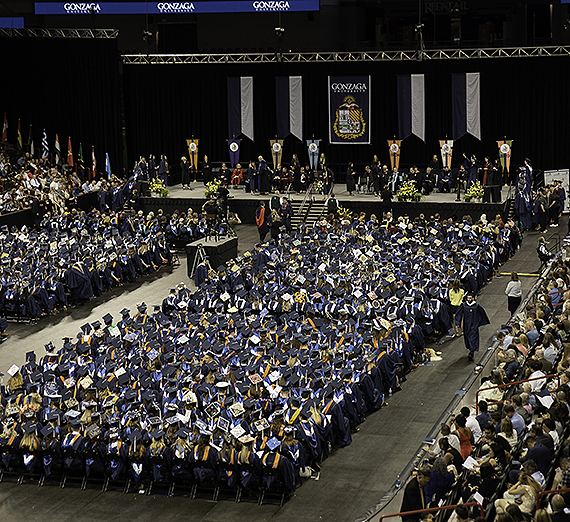
SPOKANE, Wash. — Retired Maj. Gen. Joseph Caravalho, Jr., M.D., a 1979 Gonzaga University alumnus with a distinguished military career, most recently as joint staff surgeon at the Pentagon, will deliver the keynote address at Gonzaga’s undergraduate commencement ceremony at 9:30 a.m., Sunday, May 12 in the Spokane Arena. The ceremony is among Gonzaga’s three 126th commencement exercises May 11-12.
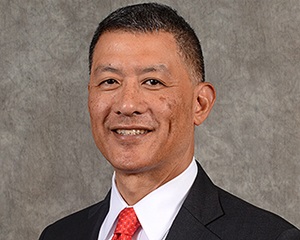
At the undergraduate ceremony, Caravalho will receive an honorary Doctor of Laws degree in recognition of his multiple contributions to the common good throughout his illustrious and decorated life as a physician, soldier, commander, and surgeon who has exemplified the Jesuit tradition of lifelong learning and selfless service to others.
Also at the ceremony, Gonzaga will honor lifelong Spokane resident Alvin J. “Fritz” Wolff, Jr., with an honorary Doctor of Laws degree in recognition of his commitment to building facilities, companies and communities.
Olivia Roberts, who is earning a bachelor’s degree in broadcast and electronic media and a minor in public relations, will speak for the students.
Law School Commencement, May 11
Madelyn F. Wessel, a distinguished leader in higher education and university counsel and secretary of the corporation at Cornell University in Ithaca, New York, will deliver the keynote address at the Law School commencement, starting at 9 a.m., Saturday, May 11 at the McCarthey Athletic Center.
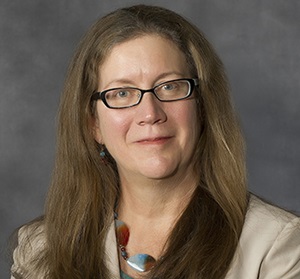
Also at the Law School commencement, Gonzaga will honor Mark DeForrest posthumously with the Gonzaga Law Medal — recognizing his exceptional lifetime commitment and distinguished service to the Law School as a Thomas More Scholar student and faculty member.
The student speaker will be Emily Sauvageau.
Jessica Kiser, associate professor of law, will speak for the faculty.
Graduate Commencement, May 11
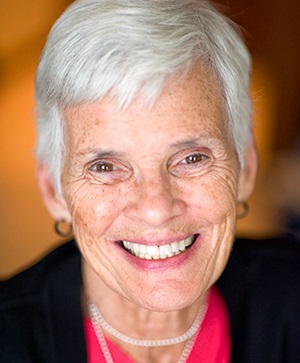
Judith Mayotte, a humanitarian, author and spokesperson for refugees around the globe, particularly those displaced by climate change, will deliver the graduate commencement address at noon, Saturday, May 11 at the McCarthey Athletic Center.
In a remarkable career that has included service as a Sister of Charity, an award-winning television producer, and educator — who had to learn to walk again after being stricken by polio in college — Gonzaga will recognize Mayotte with an honorary Doctor of Laws degree.
Michael Ortiz, who is earning a master’s degree in organizational leadership, will speak for the students.
Gonzaga to Confer 2,163 Degrees
Gonzaga expects to confer a total of 2,163 undergraduate, graduate and law degrees (2,083 in May 2018), including: 1,323 bachelor’s degrees (1,151 in 2018), 675 master’s degrees (770 in 2018), 57 doctorates (64 in 2018), and 108 law degrees (98 in 2018).
Other Gonzaga Commencement Events
- Social Justice Missioning Ceremony: 3:30, Friday, May 10, in University Chapel (third floor of College Hall). This event honors seniors who are embarking on service work through organizations including the Peace Corps, Jesuit Volunteer Corps and others.
- ROTC Commissioning Ceremony: 5 p.m., May 10, St. Aloysius Church; guests welcome; reception follows in Cataldo Hall.
- School of Law Commencement Mass: 5:30 p.m., May 10, University Chapel in College Hall (all welcome).
- Undergraduate, Graduate Commencement Mass: 4 p.m., Saturday, May 11, McCarthey Athletic Center (all welcome).
- College of Arts & Sciences Student Awards: 8:30 a.m., Saturday, May 11, Hemmingson Center Ballroom.
- Nursing Pinning Ceremony: 9 a.m., May 11, St. Aloysius Church; ceremony welcomes newly graduated nurses into their profession; reception follows in Cataldo Hall.
Visit the Gonzaga commencement site online for a complete list of all commencement-related events.
Speakers & Honorees
Joseph Caravalho, Jr.
Born in Hawaii, Caravalho graduated from Gonzaga in 1979 as a second lieutenant in the U.S. Army with bachelor’s degree in mathematics. He went on to complete his training to be a physician and surgeon, and earned a master’s degree in strategic studies at the Army War College. Throughout his illustrious and decorated life, he has lived out the Jesuit tradition of lifelong learning and selfless service to others, demonstrating daily life the Jesuit ideal of seeking the “magis” — doing more for others. He has served as a staff internist, a nuclear medicine physician, and a cardiologist, in places as varied as Okinawa, Japan, Fort Bragg, Fort Benning, Iraq, Texas, Virginia, and Maryland. As a soldier-leader, his efforts have garnered countless awards and formal acknowledgements, from the Army Distinguished Service Medal to the Bronze Star, from the Iraqi Campaign Medal to the Global War on Terrorism Service Medal and many others. After serving as joint staff surgeon at the Pentagon, in 2017 he became president and CEO of the Henry M. Jackson Foundation for the Advancement of Military Medicine. Those whom he has led as an officer and as a surgeon say he was spectacular in command and made others better officers and better people. Throughout his rich and varied career, he has never forgotten his roots and has remained a close and deeply committed friend of Gonzaga, returning often to supervise activities to honor veterans and to inspire our own ROTC students.
Mark DeForrest
Raised on a small farm outside of Anacortes, Washington, DeForrest earned a bachelor’s degree in history from Western Washington University. After living and working in the Bay Area of California and Ketchikan, Alaska, he attended Gonzaga University School of Law as a Thomas More Scholar and began a distinguished legacy as a student, scholar and professor. While in law school he was a member of the Moot Court Council and an associate editor of the Gonzaga Law Review. He was awarded a George Washington Fellowship from the Discovery Institute, a public policy foundation in Seattle.
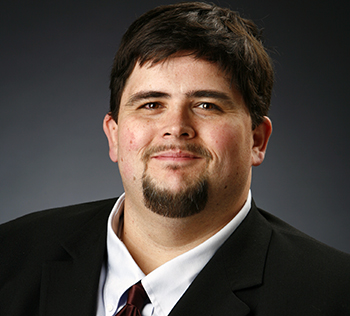
After graduating from law school, he served as a clerk for the Superior Court of Chelan County, Washington and worked on a variety of civil and criminal cases. In 1999, he was appointed as a full-time lecturer at Central Washington University, where he taught law and legal research to undergraduates for two years. In 2001, he returned to Gonzaga Law School as a legal research and writing instructor and was soon appointed as a regular member of the legal research and writing faculty. He was promoted to assistant professor in 2003 and to associate professor in 2010. He has also taught First Amendment law, professional responsibility, sentencing and corrections, and jurisprudence at the law school. A member of the Washington Bar, Professor DeForrest passed away in 2018. His widow, Azelle DeForrest, has allowed the Law School to award the Gonzaga Law Medal – the Law School’s highest honor – posthumously, to be accepted on her behalf by Professor Emeritus David DeWolf.
Judith Mayotte
Born in Wichita, Kansas, she was stricken by polio in college and had to learn to walk again. She began her first career as a Sister of Charity and taught in inner-city schools in Missouri, Arizona and California. She left the religious order, earned a Ph.D. in theology, and married Jack Mayotte, who succumbed to cancer three years later. In her second career, as a television producer, she won Emmys and a Peabody Award, before serving as associate and then acting director of University of Chicago’s William Benton Fellowship of Broadcast Journalism. After receiving a prestigious MacArthur Foundation Award, she lived in Eritrea, Sudan, Pakistan, Thailand and Cambodia, doing research for her influential book “Disposable People? The Plight of Refugees.”
In Sudan, she was accidentally hit by 200 pounds of grain — food for the refugees — dropped from an airplane. Her leg was amputated but surgery saved her life. She went on to serve as chair of the Women’s Refugee Commission, on the Board of the International Rescue Committee and as a senior fellow of the Refugee Policy Group of Washington, D.C. Returning to academe, she taught at Seattle University, Marquette University, and the School of International Studies at Johns Hopkins University. Honored multiple times with international awards recognizing her humanitarian and climate-control work worldwide, she has partnered with Archbishop Desmond Tutu, working with the Desmond Tutu Peace Centre and Leadership Academy.
Madelyn F. Wessel
A distinguished scholar and leader in higher education, Wessel has served since 2017 as university counsel and secretary of the corporation at Cornell University in Ithaca, New York. As chief legal officer, she represents and advises all Cornell boards, senior officers and officials and units — leading 16 attorneys and other staff. As secretary of the corporation, she is the chief governance officer and adviser to Cornell’s Board of Trustees. Before that, she headed legal affairs at Virginia Commonwealth University, and revamped its Title IX and Equal Employment Opportunity programs while helping to lead other institutional reforms. Before joining VCU, Wessel served in legal leadership roles at the University of Virginia (2001-14), including as associate general counsel.
She has been an adjunct professor and lecturer at Suffolk University Law School, Boston University School of Law, UVA School of Law and the Curry Graduate School of Education. Prior to her career in higher education, she served as chief deputy city attorney in the Portland, Oregon, City Attorney’s Office. A graduate of the Boston University School of Law, Wessel is a frequent lecturer at national conferences and has been active in the National Association of College and University Attorneys, including serving on the board of directors. She received the association’s First Decade Award in 2012. While in Oregon, she received several awards for her work promoting women and minorities in the legal profession and her work in civil rights and affirmative action.
Alvin J. Wolff, Jr.
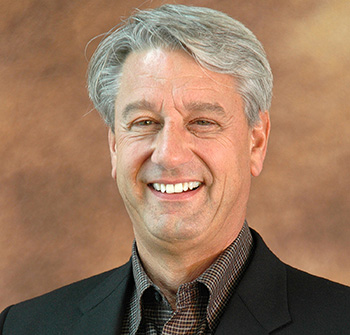
Born and raised in Spokane, Wolff is a builder. Throughout his life he has been guided by a belief in and commitment to people and to the betterment of society. A graduate of the University of Washington and the son of a Gonzaga alumnus, he has invested his time and resources in Gonzaga for more than 35 years, even teaching on both the Spokane and the Florence, Italy, campuses. The descendant of immigrants whose ethnic identity has been persecuted for centuries, Wolff is convinced that education is the best way to ensure we avoid repeating errors and injustices of the past. He has often said that “Gonzaga is the best thing, year in and year out, happening in the region.” Married to Jeanie Wolff for half a century, he is a devoted father and grandfather.
Having served Gonzaga both as a Regent and Trustee, he used his term as chair of the Board of Trustees to challenge the Gonzaga community to dream big, imagine new horizons, and discover and grow new streams of revenue. He has chaired countless fundraising efforts for Gonzaga, participated in innumerable events, and founded and funded many scholarships, projects, facilities and endowments to support past, present and future Gonzaga students. A person of profound integrity, Wolff and his family have grown the Wolff Company into one of the largest real estate private equity firms on the West Coast. That success is rooted deeply in relationships with leaders, their communities, and the many people whose lives he has improved.
